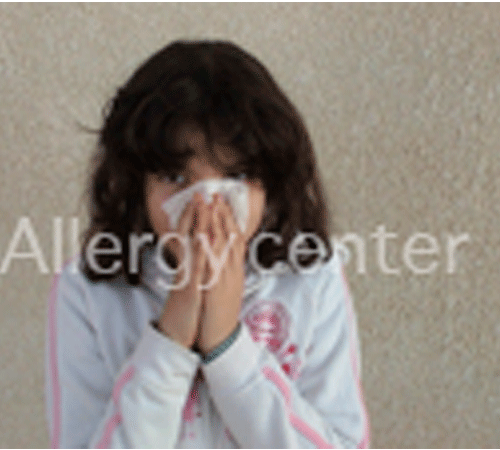When should you think about allergic rhinitis?
The usual signs of allergic rhinitis are:
Itching of the nose
Runny nose
Repeated sneezing
Stuffy nose
Sometimes a loss of smell, sleep disorders and impaired quality of life
These events are associated frequently with itching in the eyes, which turn red and lose a lot of tears.
Signs of rhinitis can:
Persist throughout the year and will be called rhinitis per annual or perennial (or if the allergen is still present in the patient’s environment)
Appear during a seasonal period (this is the case or the allergen is pollen), the symptoms will then appear during the pollination of plants (hay fever).

TUNISIAN CENTER FOR EXPLORATION OF ALLERGIC DISEASES
How to achieve the diagnosis of allergic rhinitis ?
The diagnosis is guided by the examination that will be practiced by your doctor, who will find evocative events rhinitis. It will guide you to confirm the diagnosis by doing skin prick tests to common allergens (dust mites, pollens, animal dander, mold …). Once the allergen identified you can begin your treatment.
What is the treatment of allergic rhinitis ?
The treatment of allergic rhinitis needs 3 things:
1) Avoidance of the allergen responsible
This depends on the type of allergen
Anti-mite measures:
Brighten up
Reduce the furniture in the bedroom up (get rid of carpets, curtains and carpets)
Remove lint children’s rooms
Avoid dust
Avoid pillows and wool mattress
Avoid overheating the house, avoid damp ….
Measures to reduce exposure to pollen:
Avoid going out when there is a lot of wind
Avoid walking in areas rich in vegetation during the pollen season, close the windows, avoid soft lawns)
Measures to prevent mold exposure:
Aeration of the rooms of the house
Repair rather to water seepage or leaks.
Avoid standing water.
2) Drugs
Drugs on the market do not allow healing but can improve the symptoms.
The most common are antihistamines, topical corticosteroids as nasal sprays, local decongestant (only active nasal obstruction should only be used in short course (maximum 5-7 days in a row).
3) Desensitization
It is a cure that can lead to a complete recovery of the patient. It can be done by two ways:
The injectable way: injection on a regular period, of the allergen, to the allergic person an increasing dose of the allergen under medical supervision (departing every week, then the injection time is 15days space, then a month and two months.
The sublingual route: we regularly deposited under the tongue of allergen extract. This technique has no injection will be performed by the patient himself.
The duration of desensitization is at least 3 years.